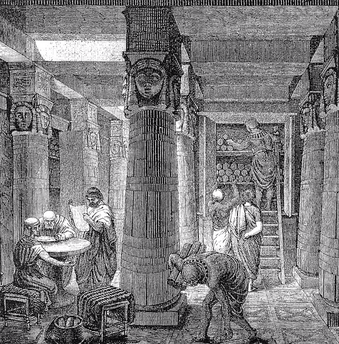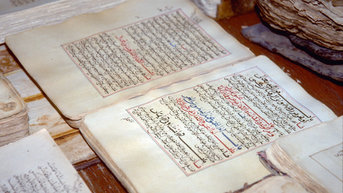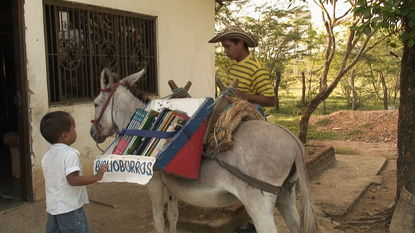|
By Sam Burnham
@C_SamBurnham I would like to call attention to an article posted this morning by the Atlanta Journal-Constitution on their Get Schooled blog. The article puts a light on information from a research scholar on East Asian education. All of my life I've heard the comparisons between American education and that of Asia, particularly the Japanese in my youth. The scholar, Cornelius N. Grove, speaks of one major difference between the two and that difference is a regular topic of discussion at ABG. According to Grove, the major difference is the roles parents play in the education of children. Rather than seeing the teachers as professional specialists hired to take on the entire task of educating children, Asian parents see teachers as highly respected resources. Teachers are a tolls that parents have to assist them in their task of educating their children. As this next school year begins in Georgia, we need to be focused, as parents, on the education of our children. Here at the house, we have used our road trips, museum visits, cultural activities, and even conversations around the dinner table to guide the education of our boys and their teachers have often commented that they can tell that the boys' education is not limited to the schoolhouse. As parents, one of the most important roles we play is that of educator. And if we ever feel like we don't know enough to be educating the boys about a topic, then we find a way to learn more about it together. When we do turn our children over to professional educators, we take an approach of a partnership. The teacher does not absolve us of our duties. Instead, the teacher is there to enhance our task, to improve our outcomes as educators. The success of our children depends on us, not the teacher. Even an inept teacher teamed with engaged parents can be successful. But even the greatest of teachers is fighting an uphill battle when not teamed up with parents who take the lead role in the education of their children. Take a look at the AJC post linked in my opening paragraph and think on it for yourself. The future is in our hands.
0 Comments
 The Great Library of Alexandria, O. Von Corven The Great Library of Alexandria, O. Von Corven By Sam Burnham @C_SamBurnham Sometime in the 3rd century B.C., The Macedonians established the legendary Library at Alexandria. This library was one part of the "Seat of the Muses," a major center of learning in the ancient world. But it was more than just books. This center included schools, lecture halls, centers for music and art. It was a center of culture as much as anything. While any other centers of learning and culture had risen by that time, the burning of the Great Library is still seen as a symbolic loss of knowledge and culture. Over 2000 years later, bibliophiles and intellectuals still look upon the destruction with a sense of mourning.  Ancient Manuscripts at the Library in the City of Timbuktu. Evan Schneider/AFP/Getty Images Ancient Manuscripts at the Library in the City of Timbuktu. Evan Schneider/AFP/Getty Images A few centuries later on the same continent, scholars came together to found the great Islamic center of learning and culture of Timbuktu, in modern day Mali. In 2012, the libraries of Timbuktu became a target of al-Qaida backed Islamist militants who believed the manuscripts to be idolatrous. Librarian Abdel Kader Haidara defied the terrorists and hatched a plot and smuggled 350,000 manuscripts out of the city and hid them in safer locations in the region.  Luis Soriano Making a Stop in Rural Colombia By Acción Visual/Diana Arias - Luis Soriano Making a Stop in Rural Colombia By Acción Visual/Diana Arias - In rural Colombia, a grade school teacher saw people with little to no access to books. So Luis Soriano started a travelling library with a collection of 70 books and two burros. He loaded books on the animals and then traveled to the towns in the region and allowed the people to check out books. Soriano has been accosted by bandits and even lost a leg in an accident involving one of his burros but that didn't stop him from carrying out the wok of the Biblioburros. I've shared these stories because I believe we are finding ourselves in an age that doesn't see them importance of libraries. Librarians are nothing more than the keepers of the books - archaic devices that, like the American industrial worker, have been replaced by technology. The internet and electronic devices have brought us into an enlightened age where little old ladies wearing their hair in buns try their best to keep dust off the stacks of unused books.
Libraries are still centers of our culture. They obviously house our books. But they also hold music, video, audio visual equipment, archived periodicals dating back centuries, even works of art on display for the public. Libraries drive our literacy and provide opportunity for people to research topics and fact check ideas themselves. Our libraries offer computers with web access for people who don't have them at home. Some libraries even offer seeds that can be replaced with seeds from next generation harvested plants. For over 2000 years, librarians have stayed ahead of the curve, keeping their institutions on the rising trends. Long before schools had librarians who knew every detail about every piece of technology in the building. And if a new way to access information comes along, these are the people who find ways to harness them and make them available to their patrons. Librarians keep the books and they do that well. But if we diminish them to that alone, we do them a disservice and we risk cheating ourselves out of one of the greatest resources available to us today. Their libraries. |
Sam B.Historian, self-proclaimed gentleman, agrarian-at-heart, & curator extraordinaire Social MediaCategories
All
Archives
November 2022
|




 RSS Feed
RSS Feed
